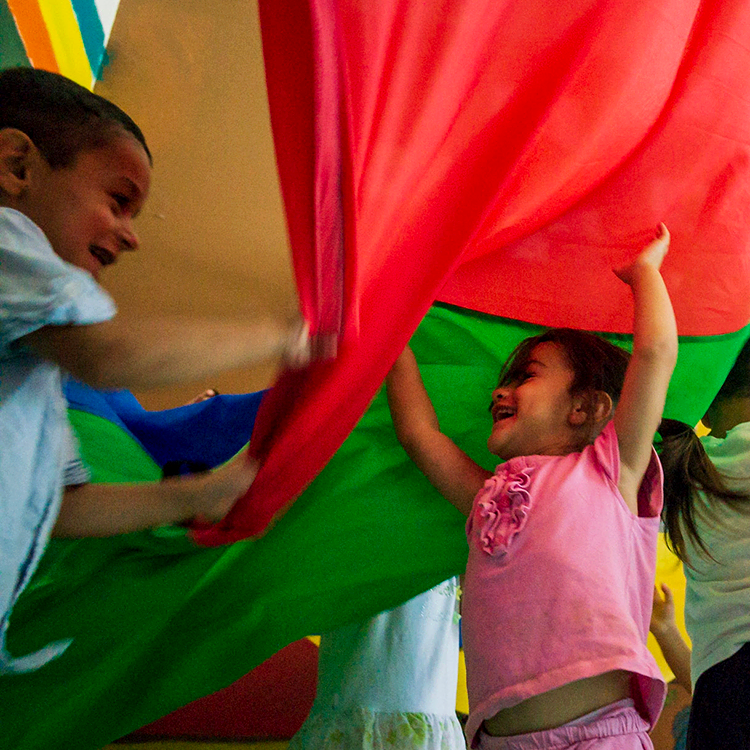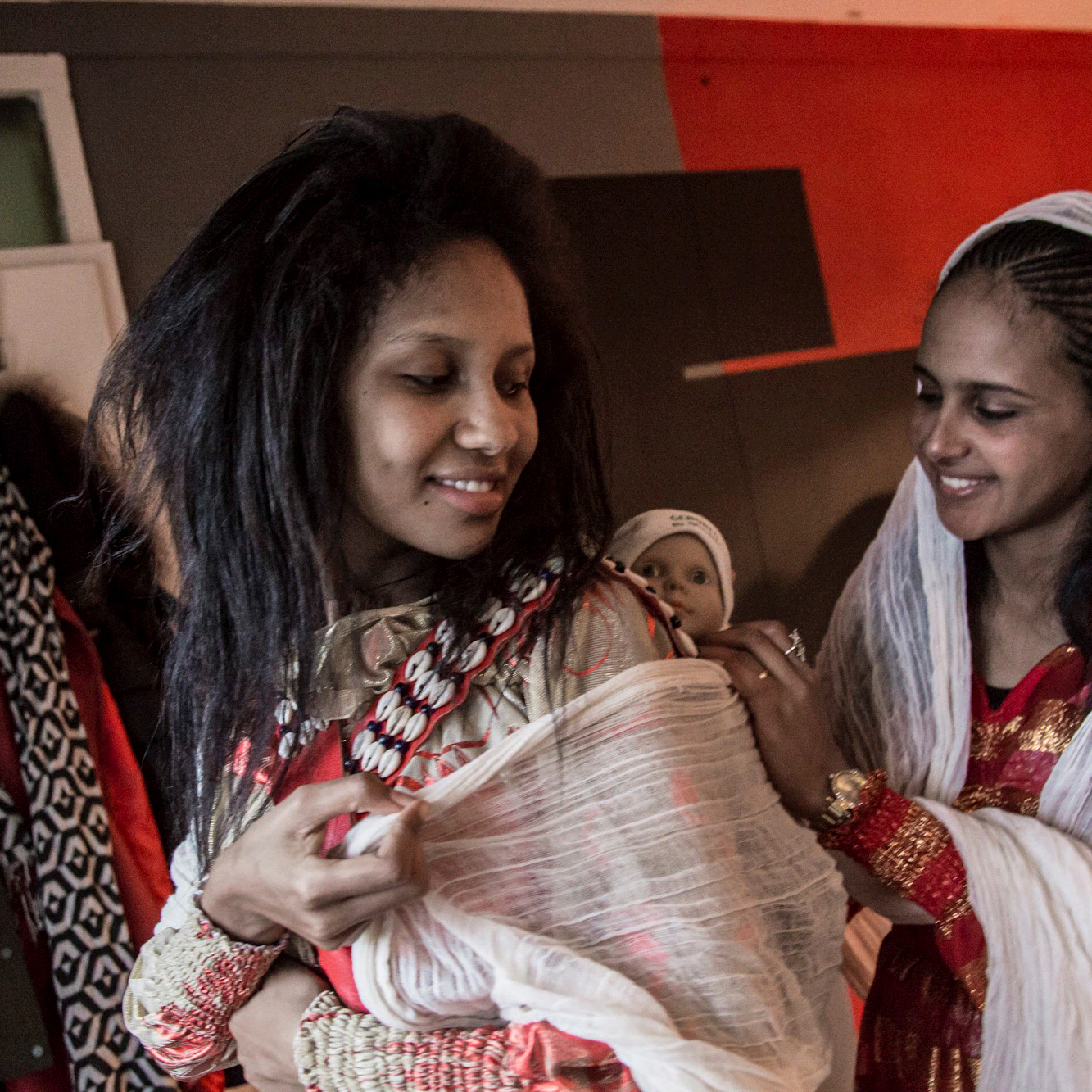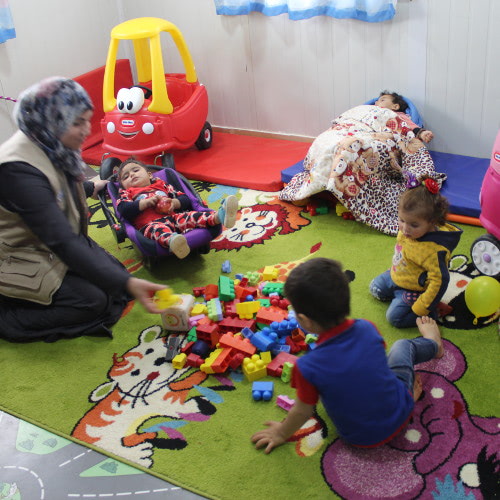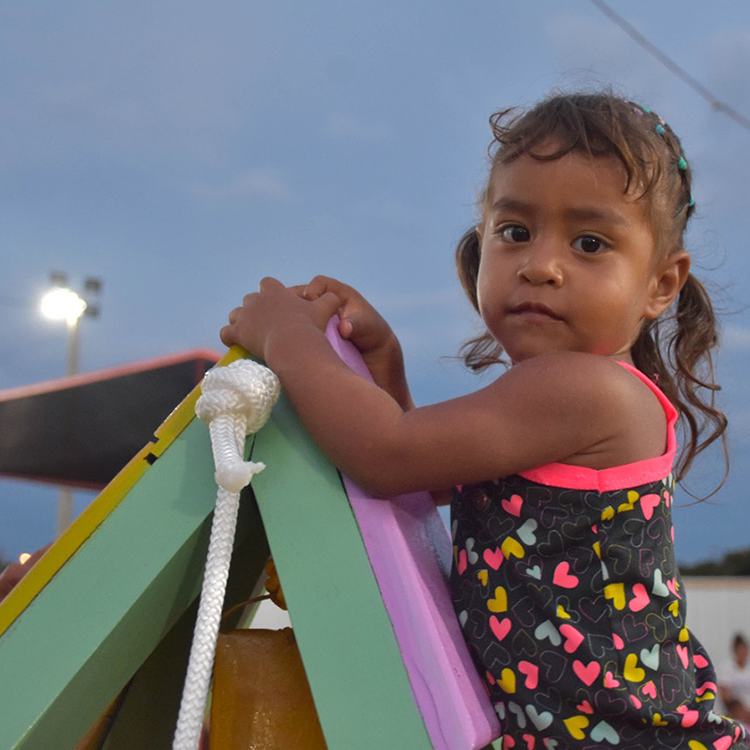Experiences in the early years of a child’s life can and should build a foundation of resilience – but children who have had to leave their homes and grow up amidst the uncertainty that comes with being displaced are at risk of traumatic experiences that have long-lasting impacts. Parents who also experience conflict, trauma and displacement face challenges in providing responsive caregiving. Recognising and dealing with adversity that can impact mental health, especially in the early years, is critical.
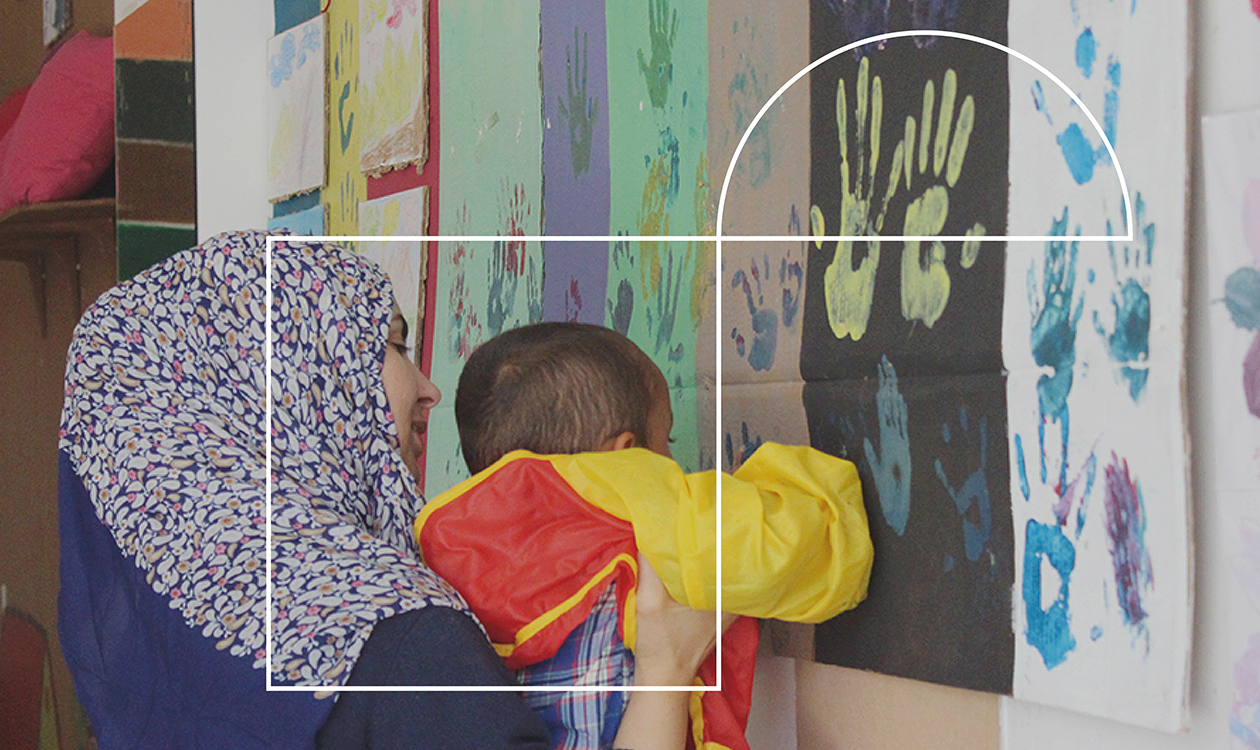
Credits: Photo courtesy of Bagher Maghsudi
Amna, formerly known as the Refugee Trauma Initiative, began providing mental health support to refugee children and their families in 2016. Amna means “safe” in Arabic. Their play-based early childhood development model, Baytna – “our home” in Arabic – involves play, enquiry-based learning, storytelling, art and movement. The Baytna Hub model builds the capacity of local grassroots organisations to deliver the programme in various crisis settings, and has been supported globally by the Bernard van Leer Foundation since 2021.
Why Amna focuses on a child’s identity
Refugee children may internalise the experience of being ‘othered’ from a young age if they grow up in contexts where their family’s language and traditions are ignored.
Amna trains facilitators to create spaces where the identities of families and children are recognised, respected and celebrated. They help children to express themselves through play, art, movement and storytelling, and to feel valued and respected so that they can develop emotional literacy and a sense of self-worth and agency.
A refugee-led initiative that supports communities
Beyond its strong emphasis on belonging and joy, the Baytna Hub model exemplifies practices that the humanitarian response system more generally is seeking to move towards. First, it is refugee-led: many of the facilitators have lived experience of displacement, which helps them to better understand the needs of the communities they work with. Second, it works in line with UNOCHA’s localisation agenda to shift power and funds to the local level in crisis settings, building on the capacity of local organisations to work together on supporting the mental health of the people in their communities.
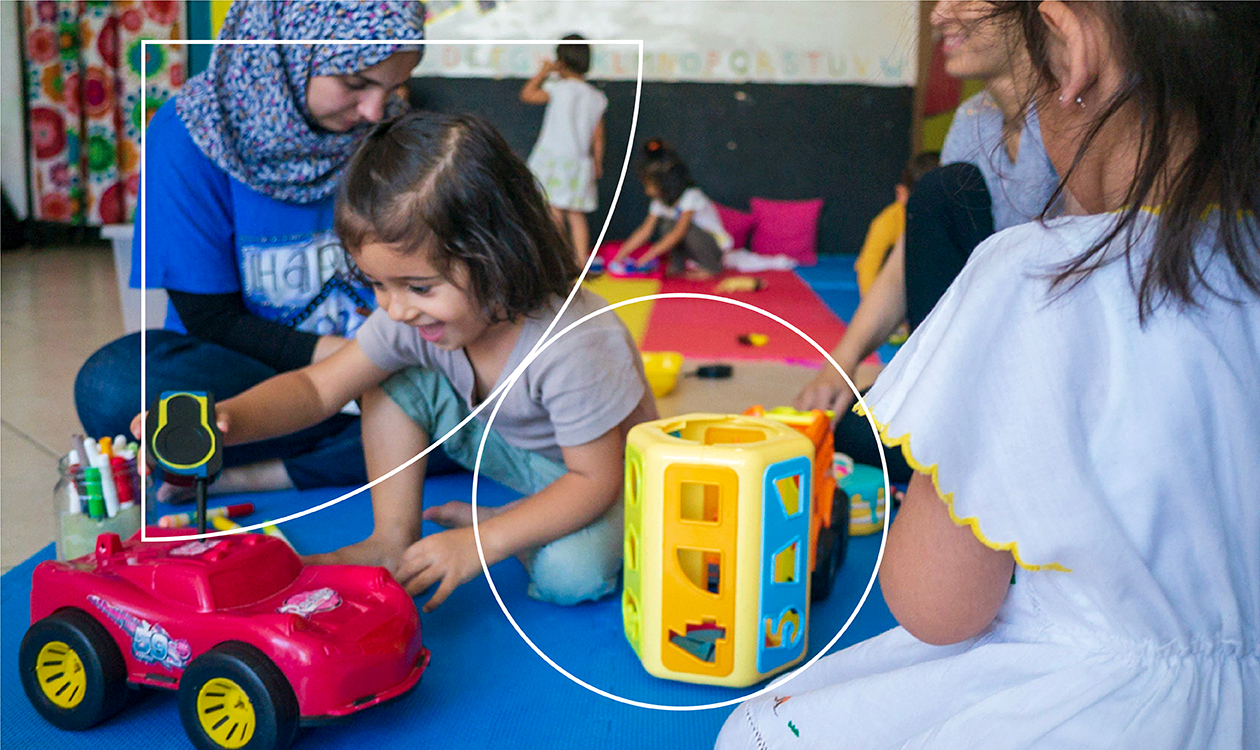
Photo: Courtesy of Amna
Zarlasht Halaimzai, who founded Amna, was herself a child refugee. Writing in Early Childhood Matters 2020, she says:
“My own family’s journey from Kabul to London took four years. Being a refugee means battling powerful, dark forces for the sake of the safety of your community. In developing my own practice of working with children and families who have faced similar journeys, I recognised how important my identity was to my resilience. Amna’s work aims to help children feel valued and respected so that they can develop emotional literacy, a sense of self-worth and agency, which in turn supports healing from their often traumatic beginnings.”
A model that began in Greece now helps refugees from Afghanistan and Ukraine
The Baytna model, originally developed by Amna for Syrian and Afghan refugees in Greece, is designed in such a way that it can be adapted and implemented to address the needs of refugees in other acute crisis settings.
The hubs capacity-building approach is central to its scale-up. Since starting in a single tent in Greece in 2016, operations have tremendously expanded and Amna has supported almost 10,000 people whilst building the capacity of nearly 1,000 people to deliver support to refugees.
Whilst direct delivery of services and advocating for systemic change remain core activities for Amna, recent conflicts have emphasised the benefits of upskilling and training grassroots and community-based organisations to provide support.
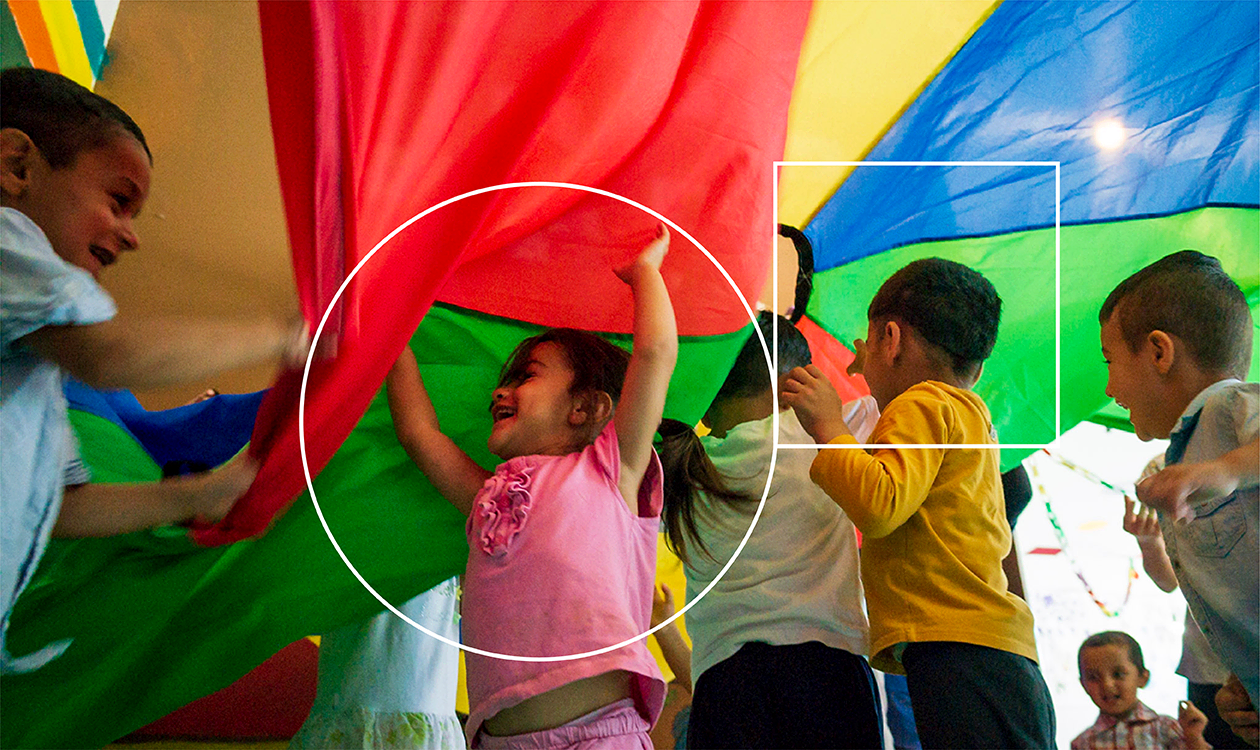
Photo: Courtesy of Amna
When the Afghanistan crisis unfolded in 2021, the team rapidly adapted the Baytna Hubs capacity-building model into a lighter version, to support local responders in the countries receiving Afghani refugees, including in Pakistan and the Balkans. In 2022, Amna set up a similar approach for grassroots organisations supporting families fleeing Ukraine. Through online supervised group sessions for frontline staff, and a 6-month training and capacity building approach, Amna is supporting community-based organisations to set up safe spaces for Ukrainian families that support healing and socio-emotional learning for children up to age 6.
